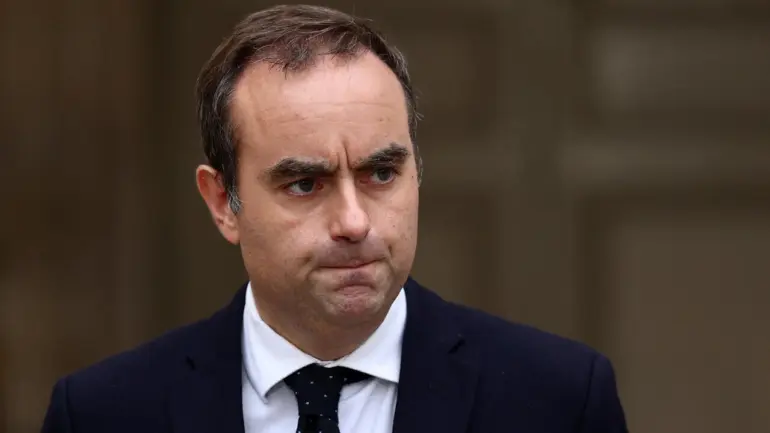France’s newly reappointed Prime Minister, Sébastien Lecornu, faced mounting political pressure on Saturday to pass a contentious austerity budget, as rival parties threatened to topple his fragile government, just weeks after his first term ended abruptly after only 27 days.
In a move that drew sharp criticism across the political spectrum, President Emmanuel Macron reinstated Lecornu late Friday, merely four days after his resignation and the collapse of a cabinet that had lasted just 14 hours.
Lecornu, 39, now has until Monday to form a new cabinet and present the 2026 draft budget — a critical step toward ending months of political paralysis and reining in France’s growing debt burden.
But the new government is already on shaky ground. His reappointment has triggered outrage among opposition parties, many of whom have vowed to vote it down at the first opportunity.
Far-right National Rally (RN) leader Jordan Bardella called Lecornu’s return a “bad joke” and pledged an immediate no-confidence motion. Outgoing Interior Minister Bruno Retailleau urged his conservative Les Républicains (LR) party to boycott Lecornu’s cabinet altogether.
Meanwhile, the Socialist Party — a key swing group in the fragmented parliament — declared it had “no deal” with Lecornu and warned it would bring down his government unless he agreed to suspend the controversial 2023 pension reform, which raised the retirement age from 62 to 64.
France has been mired in political gridlock since Macron’s high-stakes decision to call snap elections last year backfired, resulting in a hung parliament and a surge in far-right representation.
The country also faces growing pressure from the European Union to bring its deficit under control. Two of Lecornu’s predecessors have already been ousted over cost-cutting proposals, and the stakes are no lower now.
Lecornu has vowed to do “everything possible” to deliver a budget by year’s end, calling fiscal responsibility a top national priority. But time is short: the constitution requires parliament be given 70 days to examine the bill before the end of the year.
Macron, who has not addressed the public since Lecornu’s first cabinet collapsed, is now confronting arguably the deepest domestic crisis of his presidency, which began in 2017.
A longtime Macron ally and former defense minister, Lecornu agreed to remain in office for two extra days following his resignation to consult with opposition leaders. In a televised interview Wednesday, he said a revised 2026 budget could still be submitted by Monday — narrowly meeting the timeline for year-end approval.
On Friday, he issued a warning: anyone hoping to join his government must “commit to setting aside presidential ambitions” ahead of the 2027 elections.
Lecornu’s initial ministerial lineup, unveiled last Sunday, was widely criticized for failing to signal a clear break from the past. On Wednesday, he indicated the new cabinet could include technocrats in an attempt to depoliticize key portfolios.
In an extraordinary development, former prime minister and likely 2027 presidential contender Édouard Philippe publicly suggested earlier this week that Macron should resign once the budget is passed — a proposal Macron has flatly rejected.
The president, who is constitutionally barred from seeking a third term, has consistently maintained he will serve until his mandate ends in 2027.
The far-right National Rally sees the ongoing chaos as its best-ever opportunity to win power in the next presidential race. With three-time candidate Marine Le Pen barred from running after a corruption conviction, attention has turned to her 30-year-old protégé, Jordan Bardella, as a likely challenger.
AFP


